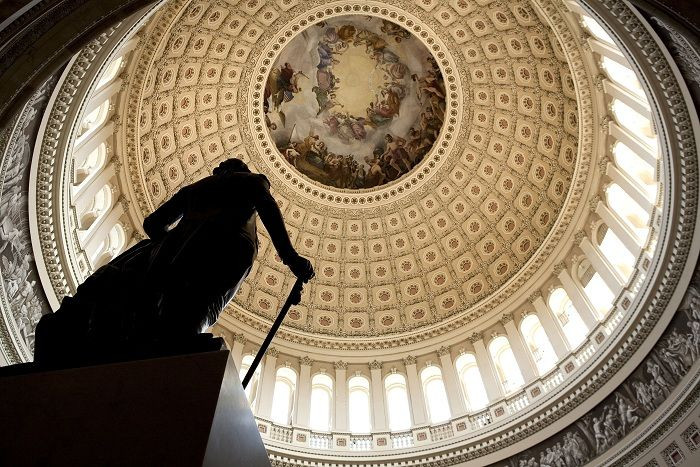GOP Senate Expected To Confirm Obama's Patent Reform Champion

Cooperation on Capitol Hill has hit historic lows in recent years, with Democrats and Republicans unable to agree on everything from Middle East policy to school lunch regulation. The gridlock isn’t expected to improve much when the GOP officially takes control of both houses of Congress in January. But even the most jaded politicos are optimistic that Capitol Hill can work with the White House on patent reform, an issue that significantly impacts American competitiveness.
President Obama in October nominated Michelle Lee to become the next director of the U.S. Patent and Trademark Office. Lee, a graduate of the Massachusetts Institute of Technology, worked as a patent lawyer before signing on as a staff attorney at Google. She's got the ear of Silicon Valley, and Republicans in the Senate are expected to confirm her nomination.
The reaction was unusually warm when she testified at a House Judiciary Committee hearing on the future of the patent office in July, a meeting that was widely regarded as a dress rehearsal for the nomination process. Both Democrats and Republicans praised Lee, leading the Washington Post to suggest “her nomination is not likely to face much resistance.”
Lee will be responsible for weighing new rules meant to curtail “patent trolls.” That's a shorthand term for companies and individuals that try to extract massive settlements by claiming that another company violated their often dubious patents.
“Academic research has yielded clear evidence that patent trolls thwart innovation and hamper venture capital investment in startups,” argued a Boston Globe editorial Tuesday. “Troll activity discourages research and development, particularly among smaller innovative companies that operate within tighter margins.” The newspaper noted that the past decade has seen a 900 percent increase in the number of businesses facing patent litigation suits.
Other results from Tuesday's mid-terms could also help fast-track patent reform. No meaningful bills are pending, but lawmakers in both parties have pointed at outgoing Senate Majority Leader Harry Reid (D-Nev.) as the reason that patent reform didn’t pass during the current Congress. Reid, who counts trial lawyers among his biggest campaign donors, blocked a bill that would have enacted monetary punishment on individuals who brought frivolous suits to court.
Sen. Patrick Leahy (D-Vt.) sided with Reid at the time but later said the Senate majority leader coerced him into helping him kill the bill. Leahy, who remains in office, told the Burlington Free Press over the summer that the issue could come up again soon.
“I am furious with what happened,” he said of the lack of patent reform. “We worked so hard to get a coalition. Harry Reid and a couple of others said, ‘We won’t let it come to the floor.’ I think that’s wrong.”
If the cries from Silicon Valley are any indication, he isn’t alone.
© Copyright IBTimes 2025. All rights reserved.





















